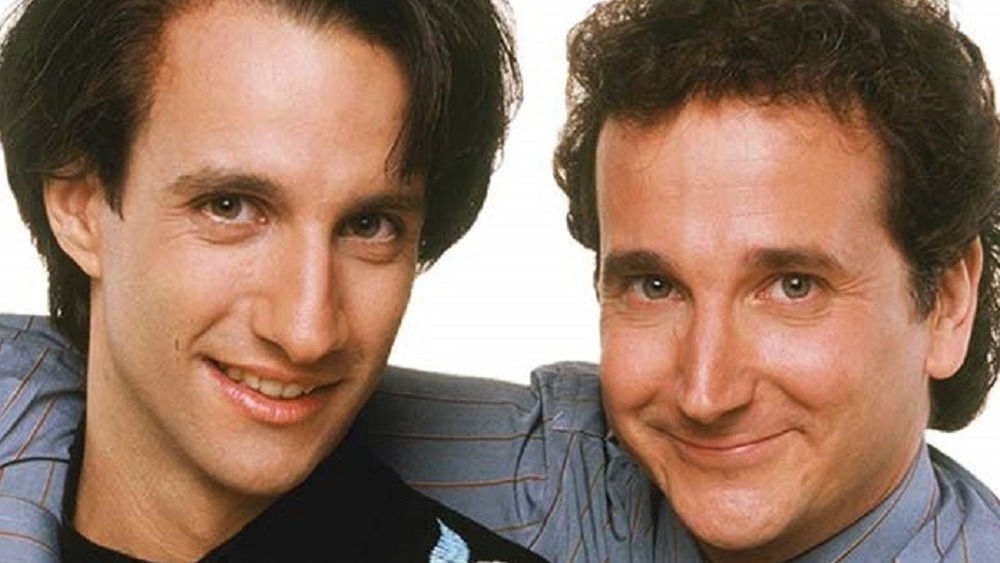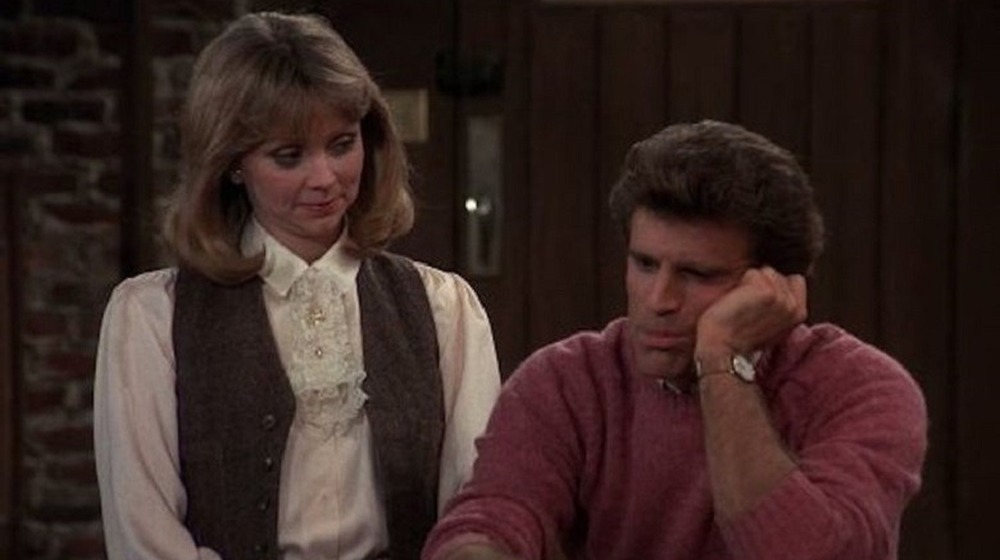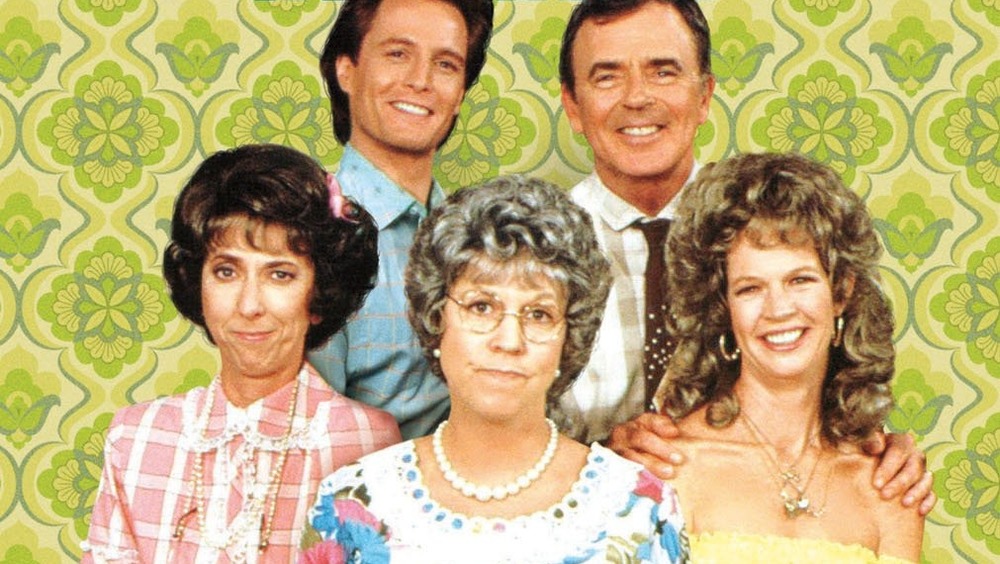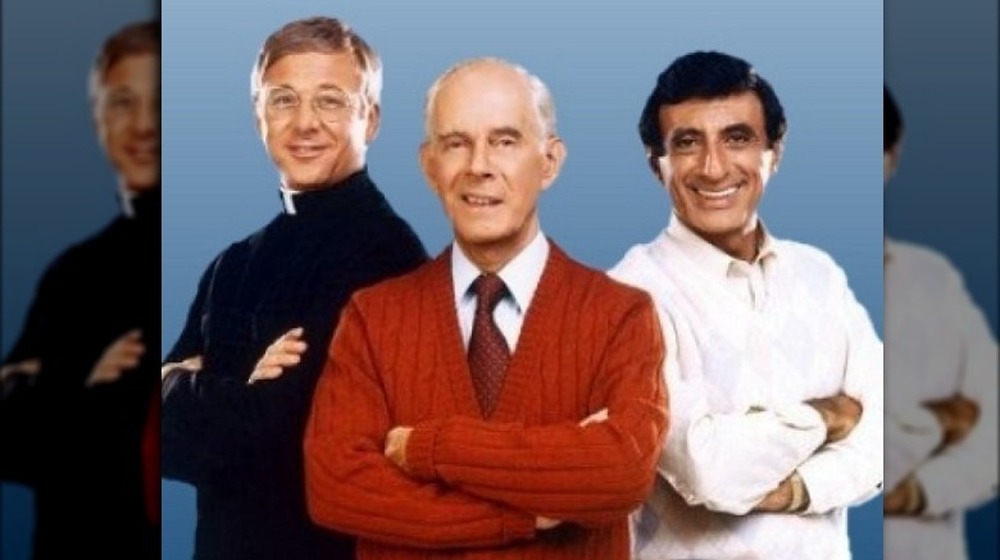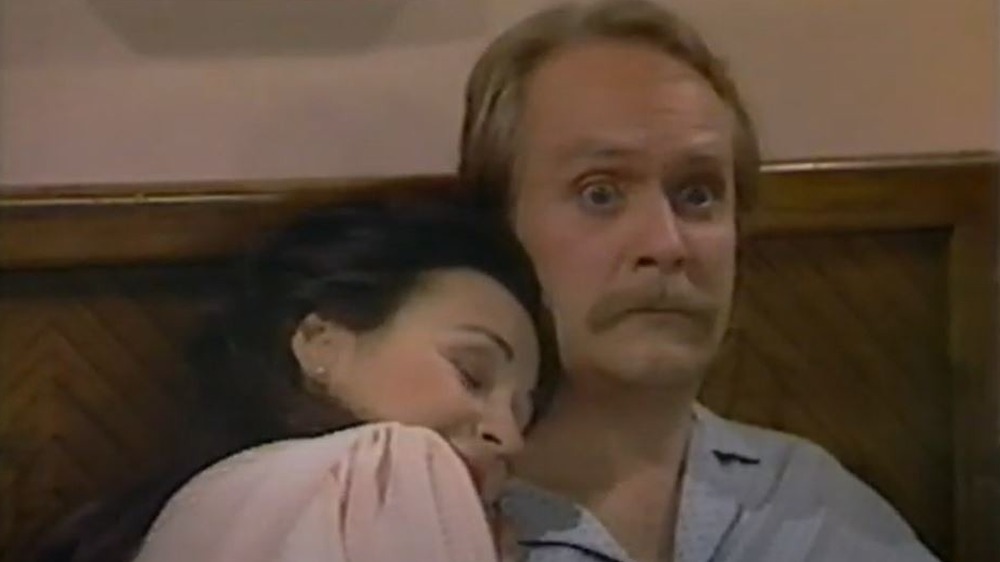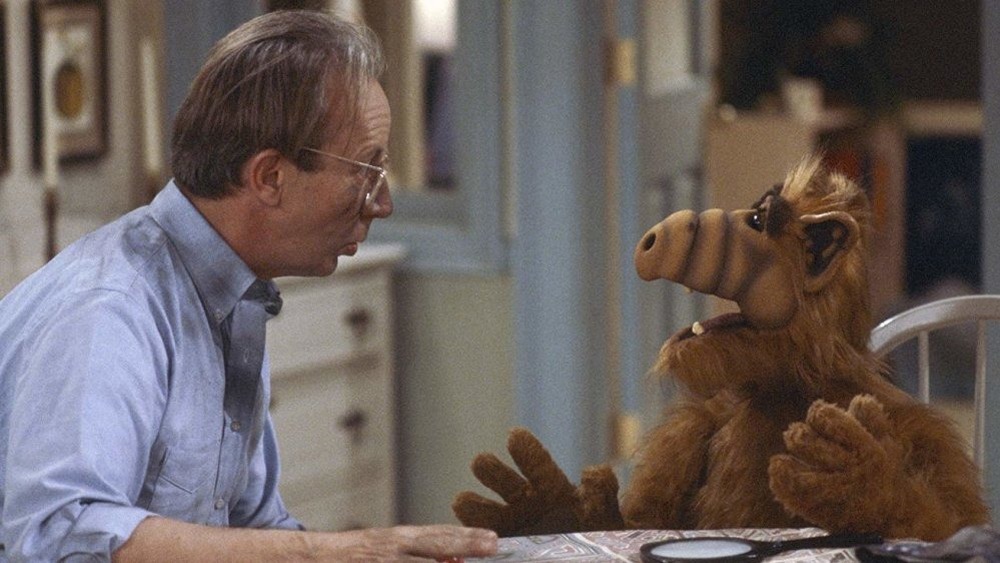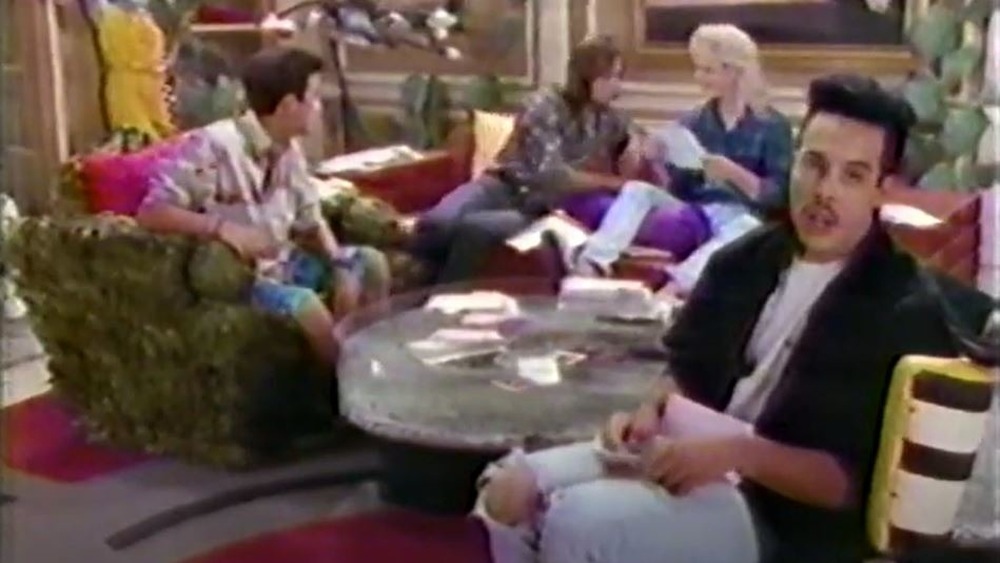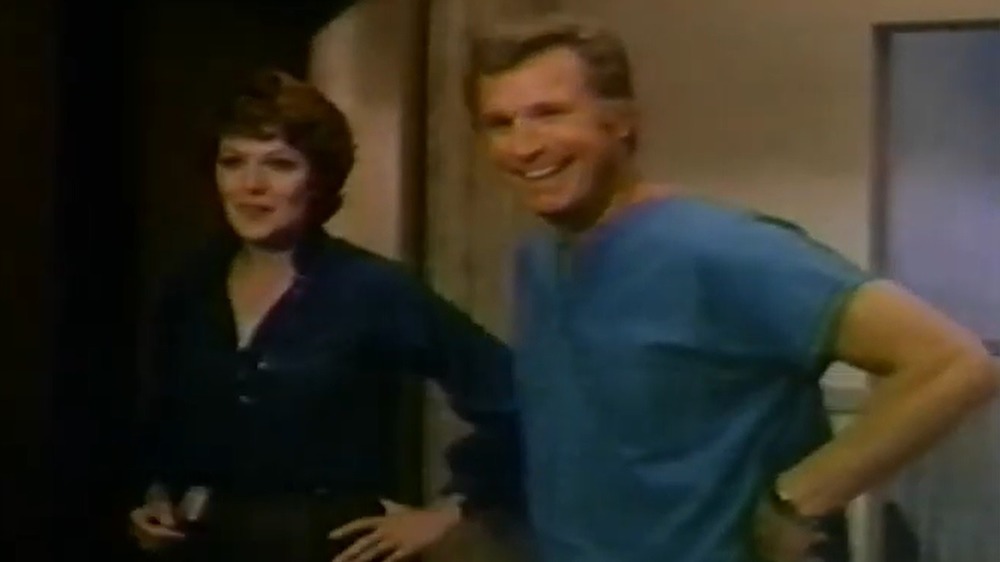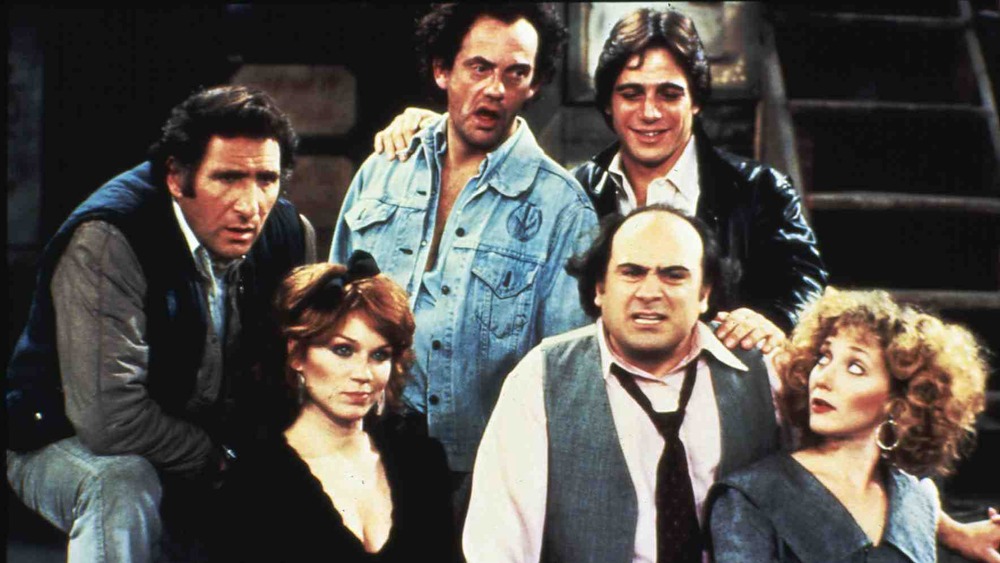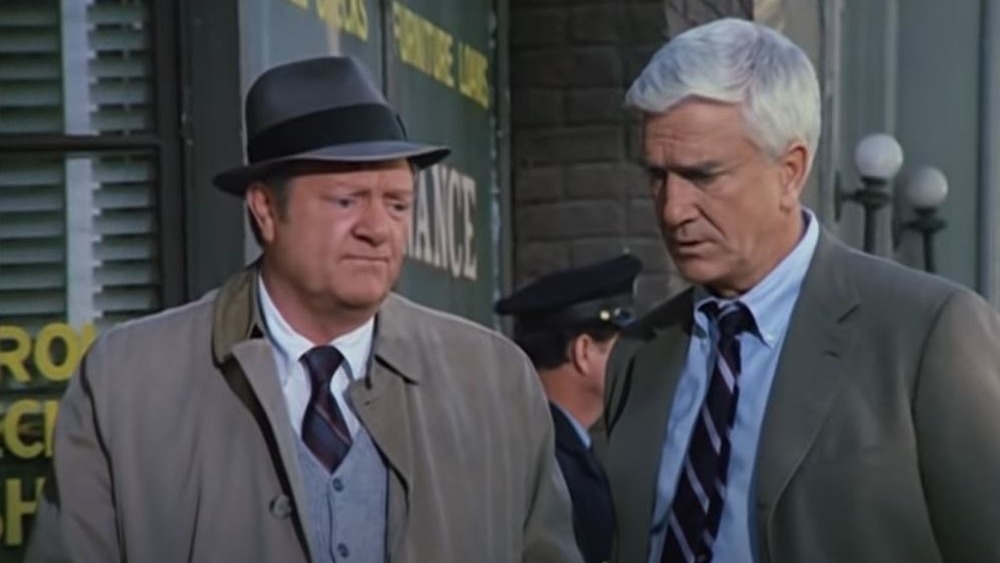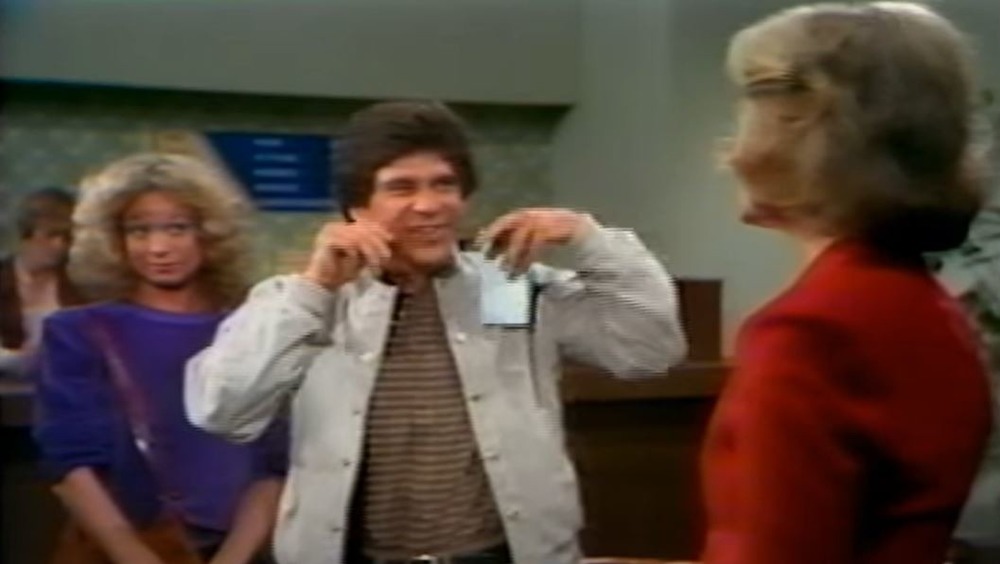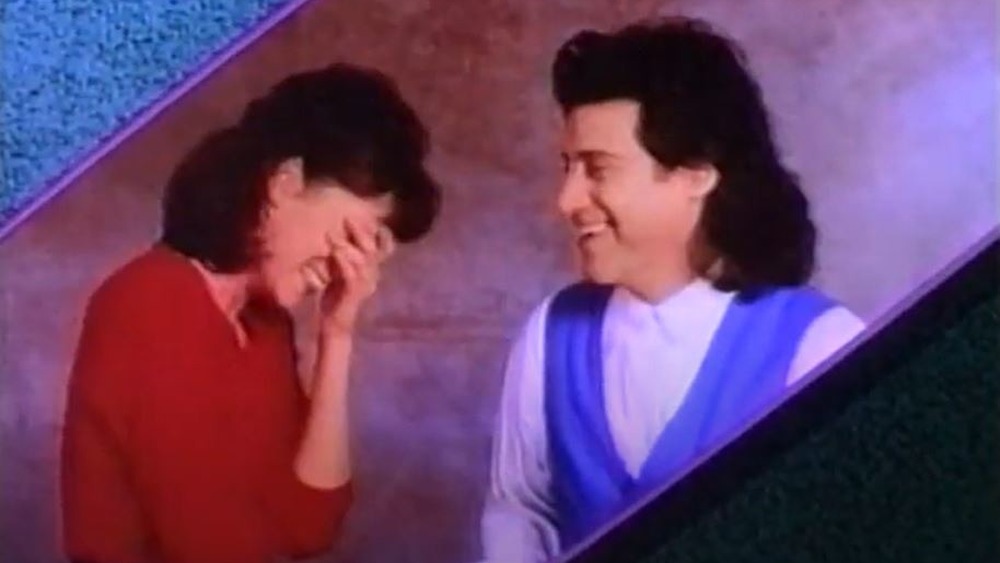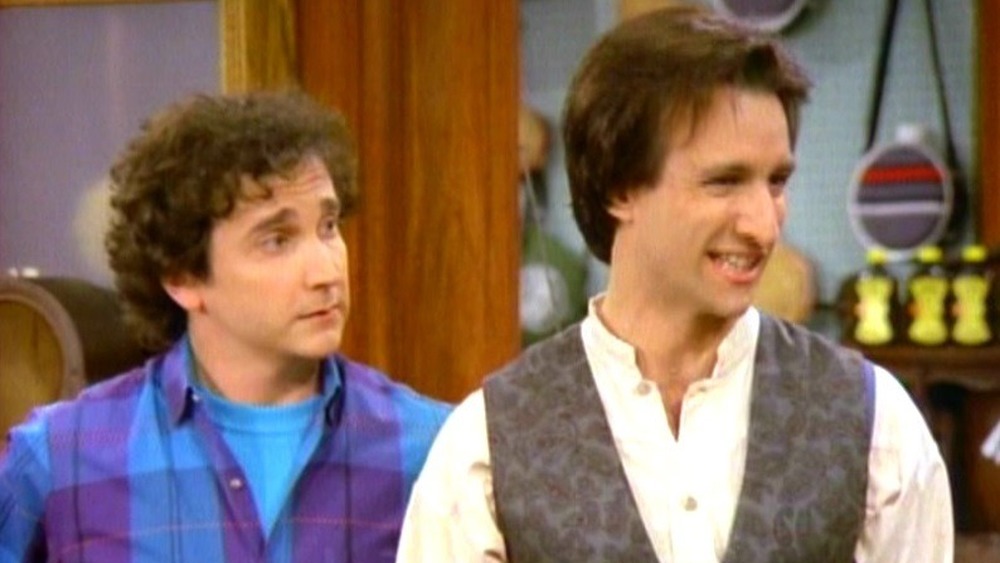The Real Reason These '80s Sitcoms Were Canceled
When it comes to ratings, the 1980s was the last great decade for network sitcoms. In the '90s, Fox rose as a fourth network, the cable boom expanded further, and everyone got a smaller piece of the ratings pie. To illustrate the contrast, the series finale of The Big Bang Theory – the biggest ratings-getter of the 2010s — delivered a 22 ratings share, meaning around 22% of American households watched one episode. In the 1980s, The Cosby Show averaged a 23 ratings share per episode all season long.
But all good things must come to an end, even for '80s sitcoms. While some of these shows were beloved in their day (there's nary a person who hasn't enjoyed a Cheers rerun at some point) and others were considered garbage, they all met the same fate. But why and how they were canceled varies wildly from show to show. So if you want to know why they left the airwaves, here's the real reason some of TV's most classic sitcoms — as well as a few you forgot about — left us in the '80s.
Cheers closed down when Ted Danson said so
It's impossible to talk about '80s sitcoms without mentioning Cheers. While the show was a massive success, the cast and crew revealed to GQ that things got tough in later years. The cast started having other commitments, the writers dreaded figuring out new beer jokes for Norm, and everyone realized that Sam had to evolve past his womanizing.
In the latter years, at the end of each season, the cast and crew would get together and decide if they felt like making more. The answer would always come down to star Ted Danson, who said it was clear everyone was "looking for an exit" but would always backtrack. But Danson finally reached his breaking point after the tenth season. His affair with Whoopi Goldberg went public, and he was on the brink of divorce with his wife. "It felt like if I really wanted to rock my boat and make changes in my life and who I am and how I am, that would also mean moving on from Cheers," as Danson put it.
Though Danson admits it wasn't an "emotionally mature decision," the writers agreed that they'd gotten everything they could out of the show. That didn't stop NBC from trying a Hail Mary. A network executive pitched Woody Harrelson on his character, Woody, taking over ownership of the bar, which Harrelson immediately shot down. As such, Cheers ended after 11 seasons.
Mama's Family was an '80s sitcom that was canceled twice
Based on characters from The Carol Burnett Show, Mama's Family was about the life and times of the Harper family, led by quick-tempered matriarch Thelma "Mama" Harper (Vicki Lawrence). The show has a unique designation on this list, as it was canceled twice.
Lawrence broke down both cancellations in an interview with the Television Academy Foundation. The first was a result of a network that didn't quite understand Mama. NBC head Grant Tinker greenlit the show, but the "young guns" at the network couldn't quite grasp rural comedies nor a young woman dressed as an old woman. The show kept moving time slots, often against tough competition like Magnum, P.I. or Love Boat, which gave them the ammo to cancel Mama's Family. Figuring the enterprise was over, Lawrence up and moved to Hawaii.
A year and a half later, the freshly merged Lorimar-Telepictures took a good look at Mama's Family. A much more forward-thinking group of "young guns" realized the show had all the makings of a hit but never got a chance. As such, Lorimar-Telepictures brought Mama's Family back in first-run syndication. It ran for four more seasons to much greater success. Lawrence spoke highly of Lorimar-Telepictures, calling them hands-off producers. However, the show was canceled a second and final time after they hit enough episodes for rerun syndication.
AfterMASH got canceled after battling The A-Team
AfterMASH — the M*A*S*H spinoff following Potter, Klinger, and Mulcahy working at a post-war veterans hospital — is often remembered as an abject failure. The actual story is a bit more nuanced. The show absolutely sandbagged itself with its name, and none of the three M*A*S*H characters used were leading man material, self-inflicted roadblocks show creator Larry Gelbart admitted to years later. Even so, it wasn't all bad. One episode even picked up an Emmy nomination. It was programming choices that killed the show more than creative ones.
Reviews were poor, but critical opinion is meaningless in the face of ratings ... and AfterMASH delivered. The show came in with a ton of momentum, with the premiere nabbing 100 million viewers. The show remained a ratings success through the first season, pulling a 20.1 Neilsen rating. It was here that the network got cocky and hurt the show more than any storyline ever could.
The network moved the series from Monday to Tuesday evenings, putting it against NBC's big hit, The A-Team. And this was a direct challenge. CBS even ran a print ad showing Klinger shaving off Mr. T's mohawk. The move backfired — AfterMASH got demolished in the ratings, losing half of its audience. It's certainly possible that more compelling storylines would've helped, but it doesn't change the fact that the show picked a fight and lost. AfterMASH was canceled with an episode unaired.
Domestic Life was too similar to another '80s sitcom
Domestic Life was a short-lived sitcom starring Martin Mull and produced by Steve Martin. Mull played Martin Crane, a Seattle-based broadcaster who offers advice on good home life despite a chaotic life of his own at home. Yes, this was a real sitcom, not a half-remembered Frasier episode. The show was something of a parody of sitcom cliches, but it wasn't strong enough to last more than one season.
In an interview with the AP a year later, Mull said it all came down to ratings. "Some perfectly dreadful things get big ratings, so go figure." He also blamed the network for that. "CBS kept moving us around and people couldn't find us. I think people tend to plan their viewing. Time Magazine called it one of the ten best shows, but that doesn't pay for my house." Mull also noted there were similarities between Domestic Life and the #1 show on TV, The Cosby Show. "Someone said Cosby's show was a black Ozzie & Harriet. If that's true, ours was a white Ozzie & Harriet, which is redundant."
Alf was canceled when TV rules changed
There's never quite been another show like Alf. The alien from Melmac found his way around on Earth with the help of the Tanner family for four seasons. The show ended on a massive cliffhanger in season four, seeing Alf captured by the government before abruptly getting canceled.
The actors on the show were relieved, given that shooting around a puppet was a waking nightmare, but fans were shocked and left wondering why. Part of it was a ratings dip, one exacerbated by NBC taking the show out of its usual timeslot and moving it to Saturdays. But the primary reason was monetary for the Peacock.
The '80s and '90s saw many changes to TV regulations, which previously mandated purchasing a certain amount of syndicating programming for certain hours. Around 1990, regulations on network-owned shows were rolled back. This meant that NBC could develop their own shows, a far more remunerative situation than paying another studio to make a series featuring puppets. Alf was canceled, and a wrap-up TV movie was shelved after NBC head Brandon Tartikoff left the network. Tartikoff admitted canceling Alf was a mistake, even if the alien did get that movie on ABC in the mid-'90s.
That said, NBC can't be too upset with the show's cancellation. Much like how the Yankees replaced Joe DiMaggio with Mickey Mantle in centerfield, Alf was soon replaced on Mondays by The Fresh Prince of Bel-Air.
New Monkees couldn't live up to the original
In 1986, MTV ran a weekend marathon of every Monkees episode. The overwhelming success shocked the network and introduced the band to a new generation of fans. So Columbia decided to capitalize by rebooting the series.
The result was New Monkees. Starring four new young actors, the show barely shared a single trait with the original series. The New Monkees lived in a mansion, came in knowing how to play instruments, and performed synthpop music. And according to an oral history with Yahoo! Entertainment, Monkees fans absolutely hated the show. As a result, there were bags full of hate mail, some containing death threats credible enough to warrant a police escort for the band. It certainly didn't help that the original Monkees were opposed to the whole venture.
The writing wasn't good enough to hook even open-minded fans. The show offered thousands of dollars below the average price for scripts, meaning that submissions came from film school students instead of professional TV writers. The band also released an album, which led to another conundrum — Warner Bros. Records was expecting Columbia to make the TV show a hit, while Columbia was expecting Warner Bros. to make the record a hit. This circular business philosophy meant neither became hits.
Of the 22 planned episodes, only 13 were shot, and the show was canceled before the back nine due to a series of self-inflicted mistakes.
House Calls was canceled after major controversy
House Calls is less remembered for its plot than for its massive controversy. The show starred Wayne Rogers and Lynn Redgrave, but by the third season, Redgrave was gone.
Redgrave claimed she was fired after the show refused to let her breastfeed her newborn in her dressing room. Universal countered by saying she was let go after unreasonable salary demands. According to Redgrave's husband and business manager, John Clark, it went deeper than that. Their opener during contract renegotiations was a raise, transportation to set, the cost of a nanny, and the ability to breastfeed in her dressing room. The show shot down even bringing the baby to set, and a few weeks later, the role was recast.
While the breastfeeding part was the most publicized, there's a good chance that was just the tip of the iceberg. Wayne Rogers was a powerful presence on set, sitting in on every production meeting and having veto power over scenes. He also brought his manager on board as a producer, which gave him more control. Sources told both People and TV Guide that Rogers wanted to make himself the sole star of the show, and "the breastfeeding business was just an excuse to get rid of Redgrave."
Whatever the motives, the end result was the same — Redgrave left the show and launched a lawsuit. Her character was written out, and the bad publicity and decrease in star power alienated audiences, causing it to plummet in the ratings and get canceled.
Taxi found new life thanks to SNL
Even three straight Emmys and an all-star cast couldn't save Taxi. As Tony Danza told the Television Academy Foundation, there "was a lot of friction" between ABC and the show's producers. The exact nature of the tension has never been made clear, but there's reason to believe it was a contrast between the network's normal offerings (lowbrow humor) and what Taxi represented.
Taxi got a decent chunk of its ratings because it was slotted after Three's Company — a time slot ABC bumped it from, causing a dip in ratings. Danny DeVito told The Hollywood Reporter that, "It was almost like a concerted effort to dodge the audience." Soon after, the show found itself canceled.
After Taxi was taken off the air in 1982, creator James L. Brooks vented his frustration in detail to The Washington Post. Brooks said the cancellation occurred after awful meetings with ABC executives, saying that they never listened to him and expressed disgust at the concept of "quality."
However, things changed when Danny DeVito hosted Saturday Night Live. Arrangements were made to bring the Taxi cast out on SNL during DeVito's monologue for a final bow. They received such a raucous reception that NBC head Grant Tinker quickly offered the show a new life. Taxi lasted for one more season on NBC, which banked the show enough episodes for syndication. The show was canceled for a second and final time for low ratings, but this time, it was more expected, and the cast was ready to move on.
Police Squad! was canceled for an incredibly stupid reason
Two years after the smash comedy hit Airplane! by legendary comedy trio Zucker, Abrahams, and Zucker, the threesome created a TV show with a similarly exclamatory title – Police Squad! Starring Leslie Nielsen as Frank Drebin, it was full of the same wordplay and slapstick humor that made the Zucker, Abrahams, Zucker movies so successful ... yet the show was canceled after a mere six episodes in 1982. The Drebin character was revived in the iconic Naked Gun trilogy, and the reason behind the show's cancellation remains one of the most infamous and baffling decisions in TV history.
Upon Police Squad!'s cancellation, ABC entertainment president Tony Thomopoulos cited the fact that "the viewer had to watch it in order to appreciate it." Yes, that phrase is a matter of historical record. It made a mite more sense in the era, when TV was designed to be thrown on in the background while cooking dinner or reading the paper, but even that's a slim justification. TV Guide contemporaneously called it "the most stupid reason a network ever gave for ending a series."
Phyl & Mikhy was kicked off the air thanks to 1980s politics
Phyl & Mikhy was a short-lived CBS sitcom that told the love story of two Olympic athletes, American track star Phyl and Russian decathlete Mikhy. The two live together after Mikhy defects from the Soviet Union, and much of the humor is derived from him learning about American technology and culture. If it doesn't sound familiar, that's because it got canceled after debuting in the summer of 1980. History buffs will see where this is going.
The show was recorded in 1979, anticipated to run alongside Olympic coverage in 1980. There was just one problem. The Soviet Union invaded Afghanistan later that year, and President Jimmy Carter tried to pressure the Russians to reverse course by promising sanctions. One such sanction involved boycotting the 1980 Summer Olympics, to be held in Moscow. When the Soviets kept their troops in Afghanistan, Carter pulled the US out of the Olympics in March 1980.
As a reminder, Phyl & Mikhy was a show about American and Russian athletes falling in love at the Olympics ... so the show was doomed. It was almost shelved, but it ran during the summer anyway. Show director and producer Hal Cooper revealed in an interview with the DGA years later that CBS executive Bob Daly canceled the show due to fear of bad PR, both from fans angry about America not competing and the optics of a Russian hero at that moment in time.
Anything but Love fell prey to 1980s TV practices
Anything but Love told the story of Richard Lewis' Marty and Jamie Lee Curtis' Hannah, coworkers at a Chicago magazine who have a hard time keeping their romantic attraction to each other professional. The show had an old-school screwball comedy feel to it, but it was canceled for a particularly '80s reason — the economics of television.
First, here's a crash course in how shows generate revenue. According to the Chicago Tribune, when studios sell programs to networks, the network pays a licensing fee, one that doesn't always match production costs. As such, the studio will cover the deficit themselves, expecting to recoup their losses once the show qualifies for syndication. It traditionally took 100 episodes to make something worth syndicating for rerun potential.
At some point during the fourth season, the network (ABC) and the studio (Twentieth Television) decided that things just weren't going to work out long term. The show was expensive to produce, and they didn't see it being successful in syndication. The network didn't do the show any favors by constantly shifting time slots, but even better ratings might not have changed the calculations that much. Anything but Love show ceased production after four seasons and 56 episodes. The show had an option to come back for one season, but ABC didn't act on it, effectively canceling the series.
Perfect Strangers ended when its stars walked away
Perfect Strangers was a buddy sitcom in the mold of Laverne & Shirley and Mork & Mindy. The story of distant family members, Larry (Mark Linn-Baker) and Balki (Bronson Pinchot), living together despite opposite personalities, it was a big hit on ABC for years and a critical part of their legendary TGIF block. It drew solid ratings, even with a strange end. Over a full year passed between the end of season seven and the start of the eighth and final season, which was a mere six episodes as opposed to the usual 20-something.
Some behind-the-scenes turmoil reached the tabloids towards the end, leading to confusion over how and why the series left the airwaves. Rebeca Arthur, who played Mary Anne on the show, finally set the record straight in an interview on the Perfect Strangers Reviewed blog. She confirmed that the last few seasons "did get very unpleasant" on set, but that had nothing to do with the cancellation. In fact, it technically wasn't canceled at all. As she explained, "Bronson and Mark's contracts were up, and they decided they wanted to move on. So they agreed to do the last 13 episodes without contracts to kind of wrap things up, but after we all came back, the network decided to do only six. I'm sure they didn't want to put any more money into it since the guys wouldn't be returning."
